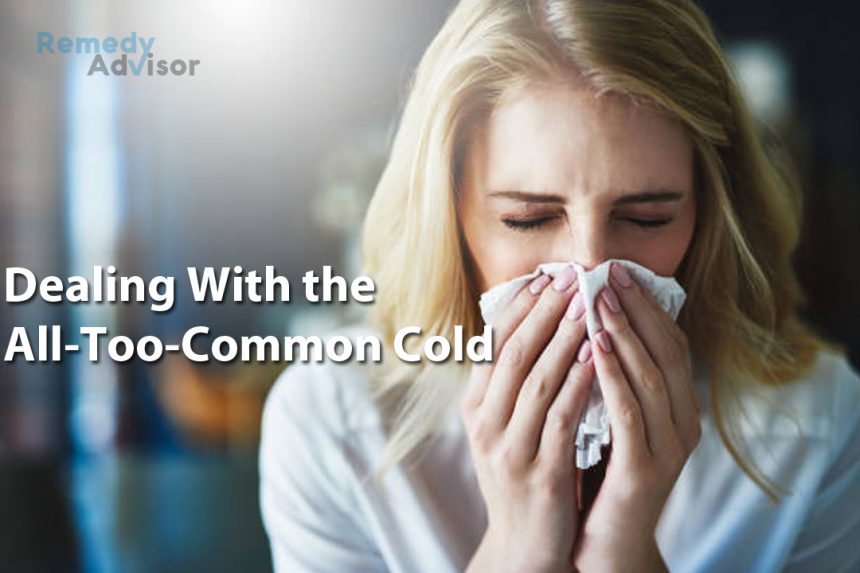We hear reports of all kinds of remedies for the common cold, from sucking on zinc lozenges to rubbing garlic on your clothes. To find out what medical science has to say about such remedies, we talked to Dr. David A.J. Tyrrell, who was one of the world’s foremost experts on the common cold.
What causes colds?
Colds are caused by any of several hundred different viruses specially adapted to grow in the nose (rhinoviruses and coronaviruses). That’s why it has proven impossible so far to make a reliable vaccine. We simply haven’t been able to come up with one that’s effective against all the viruses.
Smokers are particularly vulnerable to colds. Tobacco smoke dries out the mucus membranes lining the mouth and nose, impairing their ability to fend off viruses. Moderate drinkers (those who have the equivalent of one glass of wine a day) seem to be less susceptible.
One thing that does not affect your risk of catching a cold is being cold. Over the years, there have been various studies in which volunteers got soaked in cold baths or stood out in the rain. These people did not catch colds at a higher rate than people who stayed warm and dry.
This doesn’t mean it’s a good idea to go out in wintry weather without warm clothing. Being cold can precipitate bacterial pneumonia and other serious ailments.
How do colds spread?
Scientists disagree on this. Many think the virus spreads when a person inhales tiny virus-laden droplets of mucus and saliva liberated by the sneeze of an infected person. Some evidence suggests that it’s possible to catch a cold simply by being close (within a yard or so) to an infected person.
Other scientists think the virus spreads via hand-to-hand contact or by touching an object recently touched by an infected person, then touching the germ-laden hand to the face.
What can I do to avoid colds?
Since we can’t count on others to stay at home when they’re ill, it pays to avoid sitting or standing near anyone you suspect has a cold and to watch where you put your hands and wash them often.
Does vitamin C prevent colds?
Despite its popularity, vitamin C has never been proven either to prevent or cure colds. Study after study has found no real difference in the incidence, duration or severity of colds between people who took vitamin C (up to 3,000 milligrams a day) and those who did not take C.
What about flu shots?
They prevent certain types of influenza but won’t keep you from catching a cold.
Does psychological stress increase my vulnerability to colds?
Absolutely. Several years ago, I did a series of studies in collaboration with Sheldon Cohen, PhD, a Carnegie Mellon University psychologist.
We found that people who had recently been through a stressful experience job loss, the death of a close relative or even desirable forms of stress like getting married were more prone to colds than other individuals.
We found an almost two fold difference in infection rates among the most- and least stressed individuals
What’s the best way to treat a cold?

While there’s no way to cure the common cold, there are ways to make the symptoms more bearable
- Drink liquids to keep mucus membranes moist.
- Soothe a sore throat with warm, sweet drinks, such as tea with honey. Or gargle with salt water.
- Inhale water vapor from a steam kettle or a hot bath or shower to help clear nasal passages. A hot bath is relaxing as well.
- Keep the air moist by using a humidifier or a kettle.
What about over-the-counter medications?
Take aspirin, acetaminophen or ibuprofen to reduce pain and fever. Aspirin should not be given to children under 12 (some sources say 19) because of the risk of Reye’s syndrome. Aspirin can cause stomach upset, and acetaminophen occasionally causes liver damage. Ibuprofen has a good safety record, although it, too, can cause stomach upset.
Decongestant that contains ephedrine tightens dilated blood vessels, decreasing swelling and secretion of mucus. It’s best to Taking drug in nose drops or nasal spray is better, because the effect will be confined.
Taking any drug orally exposes the entire body. Use of nasal decongestant spray or drops for more than a week is considered harmful. You are at risk of a “rebound” reaction, in which congestion deteriorates and the body depends on the drug.
Should I see a doctor if I have a cold?
In most cases, that’s unnecessary. But if symptoms persist for more than a week, or you have high fever or pus like nasal secretion, you may have developed a bacterial infection on top of your cold. In such cases, see a doctor immediately. Ask if you need antibiotics which, by the way, are ineffective against colds.
Children under age three, elderly people and those with lung or heart trouble are at greater risk of potentially deadly complications. They should notify a doctor at the first sign of anything more than a very mild cold.
The doctor should also determine whether you have a cold or the flu. A mild case of flu is often indistinguishable from a cold and a severe cold may resemble the flu. Although both are characterized by sore throat, runny nose and cough, influenza usually involves muscle aches, headache and high fever.
The antiviral drugs rimantidine (Flumadine) and amantadine (Symmetrel) and the newer drugs oseltamivir (Tamiflu) and zanamivir (Relenza), an inhaled medication, can hasten recovery from influenza. However, they’re effective only if taken soon after the onset of symptoms.
Is it okay to exercise with a cold?
There’s no evidence that exercise prolongs or exacerbates a cold. Indeed, some people say they feel better afterward. But don’t push yourself if you feel terrible.
Are any popular home remedies helpful?
Many old-fashioned remedies do seem to reduce discomfort, even if they don’t actually get rid of the cold. For example, warm liquids like chicken soup soothe the throat, while the rising steam loosens up mucus. And tea made with ginger or another fragrant herb helps settle an upset stomach.
Menthol mixed with hot water to make steam or rubbed in gel form on the upper lip seems to clear clogged nasal passages.
Zinc lozenges, the herb Echinacea and homeopathic products are said to be helpful in treating colds. But at this point, their effectiveness has not been proven.







